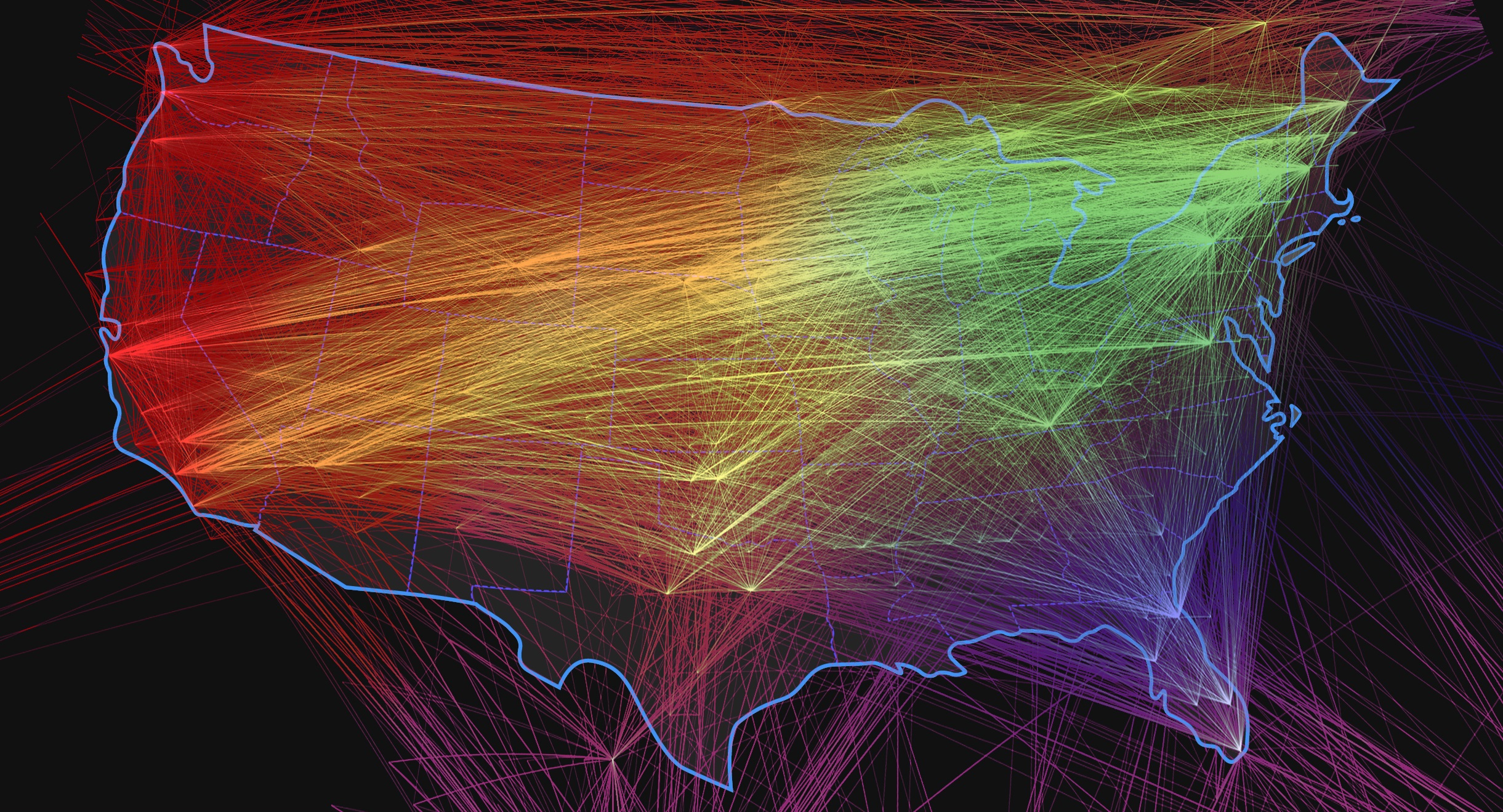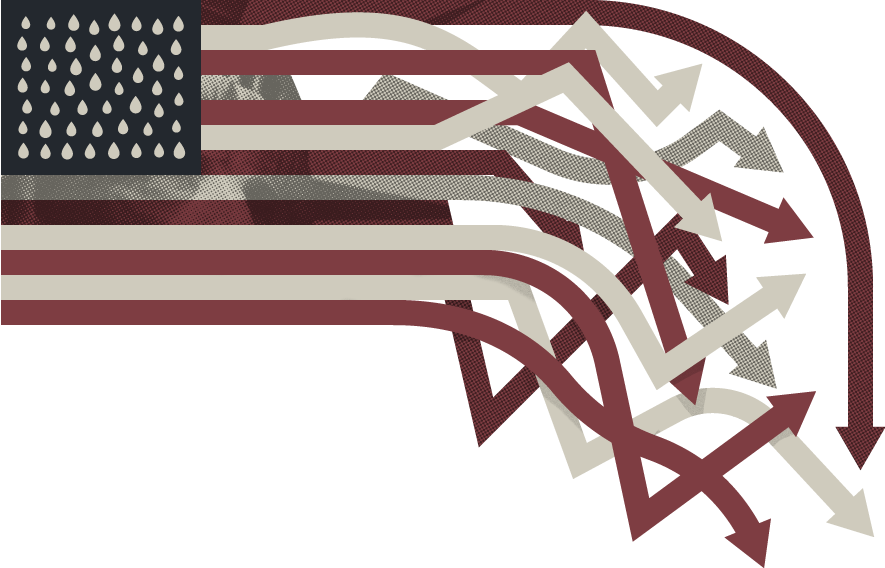
Why Knight Foundation is investing in a new field of study on informed society in a digital age
Strong democracies depend on freedom of expression and access to accurate information about community and public affairs. This is as true today as when freedom of the press was enshrined by the framers of the U.S. Constitution in the first correction they made to the governing principles of our country — what we call the First Amendment.
What is changing in ways the founders could not have imagined are the conditions of our digital age. Theirs was a world of print reporting through largely local circulation. Ours is a world in which every element of how we produce, distribute and consume information continues to relentlessly surge forward.
At Knight Foundation, we believe it’s critical to understand how the information landscape is shifting, and how that evolution affects our society and democracy. That’s why we are investing in what we hope will become a new, multidisciplinary field of research. Starting today, we are calling for proposals to establish or accelerate the growth of centers of study focused on the role of information in our democracy and the changing conditions of an informed society. We are prepared to provide substantial, multiyear support.
We are calling for proposals to establish or accelerate the growth of centers of study focused on the role of information in our democracy and the changing conditions of an informed society.
This is not the first time that the supply of information has seemed out of sync with the information needs of citizens in a democracy. Over the course of the 20th century, Americans institutionalized mass communication through a national print press, broadcast television and radio. We also perfected the basic principles of journalism and journalistic verification. This was not by accident.
In 1946, a commission on “The Freedom of the Press” sponsored by Henry Luce, then publisher of TIME, analyzed the state of press freedom. They pointed to concerns about the “economic structure of the press,” “the industrial organization of modern society,” and “the failure of the directors of the press to recognize the press needs of a modern nation and to estimate and accept the responsibilities which those needs impose upon them.”
Sound familiar?
Today we are living in a world in which the economic structure of the modern journalism enterprise has nearly collapsed at the local level. We are living in a world in which the industrial organization of modern society is rapidly changing, due in no small part to the commercial internet. We are living in a world where the commercial internet and social media have changed our relationship to journalism and information in ways we still do not fully understand. And we are living in a world in which we have new “directors of the press”— the Silicon Valley leaders who play an enormous role in determining what we see, but reject the mantle of publisher.
The internet has undoubtedly further democratized access to information — its production, its distribution and its consumption. Yet, as the Knight Commission on Trust, Media and Democracy notes in a public draft of the first chapter of its report, the internet has also “given rise to a cacophony of voices that has raised new concerns about what news is and how its veracity can be determined, and about the extent to which these new media pose a challenge to democratic process.” And, in a Knight-Gallup survey of 20,000 Americans, nearly 60 percent said that it is harder rather than easier to be informed today due to the plethora of information and news sources available.
This is the paradox of our age. Information is easier than ever to grasp, yet we feel less informed.
In many ways, we are confronting challenges to an informed democracy akin to the health challenges that emerged in cities in the early 20th century or the environmental challenges caused by industrialization. We needed new tools to meet those challenges. We also needed new disciplines like public health and environmental science. These disciplines not only armed us with knowledge and insights, they also trained the whole generation that would take on these issues — in government, in civil society and in the commercial sector.
A significant problem today is that we simply don’t have the knowledge or the spaces to confront the impact of the internet on our informed society in a thoughtful and deliberate manner. Basic questions about how our digital information environment affects the production and consumption of information and the effect on citizens and communities remain unanswered. Answering these questions is hard. They require new approaches that bring together diverse fields like computer science and anthropology. Much like the physical sciences, these questions also demand sometimes costly tools to collect and analyze digital information.
A significant problem today is that we simply don’t have the knowledge or the spaces to confront the impact of the internet on our informed society in a thoughtful and deliberate manner.
This Request for Proposals is intended to spark ambitious thinking about the 21st century needs of our democracy. We aim to be intentionally broad. From access to information, to the proliferation of misinformation, to the nature of online speech to issues like anti-trust policy — we’re not setting limits. What we want to identify are the people and places that recognize the fundamental, long-term nature of these issues and an ambition to provide new ideas and insights, and to contribute new leaders and voices.
At Knight Foundation, our response to the dramatic changes in media has been to focus on the question of trust. We have sought to understand the causes and consequences of declining trust in journalism and to promote solutions that enable trust in journalism and affirmation of common facts. This approach is rooted in the views of our founders, Jack and Jim Knight, who led and grew the Knight newspaper chain to what would be the largest in the country. Jack Knight spoke about journalism as a way to “bestir the people into an awareness of their own condition, provide inspiration for their thoughts and rouse them to pursue their true interests.”
Some of what is needed to begin to restore trust in journalism has to happen today. We need new tools to improve the experience of navigating information online and to identify and address deliberate misinformation. We need efforts that increase the quantity, quality and relevance of reporting in communities. We need to explore new, more sustainable models to support local journalism, the hardest hit facet of the industry.
At Knight, we’re supporting efforts in all these domains. But we need longer-term thinking as well.
Recent controversies around whether social media and technology companies should ban specific sites and individuals illustrate how poorly equipped we are to address the future impacts of technology on an informed society.
To date, few places consistently provide the time and resources necessary to sustain long-term multidisciplinary work and to cultivate a new generation of leaders, thinkers and scholars ready to tackle these issues. It’s time for that to change.
Interested parties can find the Request for Proposals here.
Sam Gill is VP/Communities and Impact and Senior Adviser to the President at Knight Foundation. You can follow him on Twitter @thesamgill.
Image (top): Photo by Rodion Kutsaev on Unsplash
-
Journalism / Challenge
-
Information and Society / Report
-
Information and Society / Topic
Recent Content
-
Community Impactarticle ·
-
Community Impactarticle ·
-
Community Impactarticle ·





